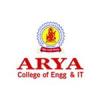Why Do Entry-Level Jobs Require Experience?
Entry-level jobs requiring experience are a frustrating paradox for many job seekers, especially fresh graduates. Here are the primary reasons behind this trend:
- Applicant Filtering: Employers use experience requirements to narrow down the applicant pool, ensuring candidates have basic industry knowledge and professional skills.
- Reduced Training Costs: Companies prefer candidates who can contribute immediately, minimizing the time and resources spent on training.
- Perceived Skills Gap: Employers often believe recent graduates lack practical skills like teamwork and communication, which they aim to address by hiring experienced candidates.
- Job Description Inflation: Some employers inflate requirements to attract highly skilled candidates or justify lower salaries for experienced hires.
- Economic Competition: High unemployment rates and layoffs increase competition, leading employers to raise standards for entry-level roles.
How to Get a Job Without Experience
Securing a job without prior experience requires strategic approaches:
- Apply Anyway: Many employers consider experience requirements flexible. Highlight transferable skills and enthusiasm in your application.
- Tailored Resumes: Focus on academic projects, internships, volunteer work, or extracurricular activities that demonstrate relevant skills.
- Networking: Build connections with professionals in your field to uncover job opportunities and gain referrals.
- Upskill: Enroll in online courses or certifications (e.g., Coursera) to develop industry-specific knowledge that compensates for lack of experience.
How to Gain Work Experience as a Fresher
Freshers can build experience through various avenues:
- Internships: Internships provide hands-on exposure and are often considered equivalent to professional experience.
- Volunteer Work: Volunteering in roles that develop relevant skills (e.g., leadership or teamwork) can enhance your resume.
- Freelancing: Freelance projects allow you to gain industry-specific experience while working independently.
- Academic Projects: Capstone projects or research demonstrate your ability to apply theoretical knowledge practically.
- Co-op Programs: Participating in cooperative education programs combines classroom learning with work experience, making you job-ready.
By leveraging these strategies, freshers can overcome the challenges of entry-level job requirements and successfully enter the workforce
Resume Without Work Experience
Crafting a resume without formal work experience can be challenging but not impossible. Here are tips to create an effective resume:
- Focus on Education: Highlight your academic achievements, relevant coursework, and any honors or awards. Include projects or presentations that demonstrate applicable skills.
- Emphasize Skills: List transferable skills gained from internships, volunteer work, or personal projects. Skills like communication, problem-solving, and teamwork are valuable in any job.
- Include Volunteer Work: If you've volunteered, include this experience on your resume. Describe the responsibilities you held and the skills you developed during this time.
- Showcase Relevant Projects: Mention any personal or academic projects that relate to the job you're applying for. Detail what you accomplished and the skills you utilized.
- Use a Functional Format: Consider using a functional resume format that emphasizes skills over chronological work history. This format allows you to present your qualifications more effectively when lacking direct experience.
- Tailor Your Resume: Customize your resume for each job application by aligning your skills and experiences with the specific requirements of the position.
For Entry-Level Jobs employing these strategies, you can create a compelling resume that highlights your potential despite limited formal work experience.
Read full Blog : Arya College

